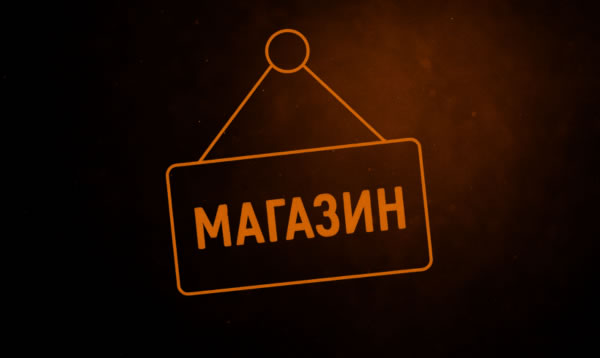11.03.2021
Legal alerts
Legal alerts
Comprehensive Changes in Tax Law.

The Draft Amendments to the RF Tax Code (hereinafter referred to as the RF TC) prepared by the Ministry of Finance in connection with implementation of the main strands of tax policy were presented for public discussions. The amendments will have effect, in particular, on the excise tax, depreciation of the fixed assets, carrying forward of losses, reports on the commercial property taxes, and taxation of cultural institutions.
Depreciation in case of refurbishment.
First, the amendments suggest that the initial value in case of refurbishment should vary regardless of the remaining value of the fixed assets (Clause 17, Article 1 of the draft document). A similar rule shall be applied to additional construction, installation of additional equipment, modernization, technical upgrade, partial liquidation, etc.
Second, the amendments are expected to adjust the depreciation procedure in case the useful life of fixed assets is not increased following the refurbishment, modernization or technical upgrade (Clause 18, Art. 1 of the draft document). In this case, the company should apply the depreciation rate as established based on the initial useful life.
Second, the amendments are expected to adjust the depreciation procedure in case the useful life of fixed assets is not increased following the refurbishment, modernization or technical upgrade (Clause 18, Art. 1 of the draft document). In this case, the company should apply the depreciation rate as established based on the initial useful life.
Carrying forward of losses.
Limitation on accounting of past losses to 50% is suggested to be renewed until the end of 2024 (Clause 21, Art. 1 of the draft document). In accordance with the currently effective version, the temporary procedure shall be applicable until December 31, 2021.
It should be kept in mind that from January 31, 2017 the profit tax base can be decreased by deduction of past losses, but not more than by 50%. Exceptions are made for bases subject to certain special taxes.
We recommend carrying forward of losses when profit is generated.
It should be kept in mind that from January 31, 2017 the profit tax base can be decreased by deduction of past losses, but not more than by 50%. Exceptions are made for bases subject to certain special taxes.
We recommend carrying forward of losses when profit is generated.
Corporate property tax return.
Russian companies are not obligated to submit reports on the property if the corresponding property tax base is equal to the cadaster value of the property (Clause 37, Art. 1 of the draft document). Such property items are expected to be subject to the same procedure as currently applicable to the transport and land taxes, i.e., the company shall calculate the corresponding amount and transfer it to the state budget and, if necessary, present clarifications and documents to the fiscal authorities; the tax inspectorate shall send a notice of assessed tax.
The rules will be applicable to:
• real estate items included into the regional list of property with cadaster value base and property items which result from division of such real estate items;
• residential property, garages, parking spaces, etc.
Said rules are expected to become applicable to tax returns for 2022 (Clause 9, Art. 4 of the draft document).
For other suggested amendments, please refer to the draft document.
The rules will be applicable to:
• real estate items included into the regional list of property with cadaster value base and property items which result from division of such real estate items;
• residential property, garages, parking spaces, etc.
Said rules are expected to become applicable to tax returns for 2022 (Clause 9, Art. 4 of the draft document).
For other suggested amendments, please refer to the draft document.
Amendments to the Accreditation Procedure for Foreign Representative Offices and Branches.

Russian President Vladimir Putin signed the law on improvement of the accreditation procedure for foreign branches and representative offices in the Russian Federation. The document was published on the official legal acts portal.
According to that law, the accreditation period for foreign branches and representative offices (excluding representative offices of airlines) shall be reduced from 25 to 15 work days. A state fee shall be charged for said accreditation in accordance with the law on taxes and levies (the current state fee amount is RUB 120 K).
The accreditation shall be suspended, should the foreign company fail to present necessary documents or should such documents fail to conform to the requirements. A resolution to refuse accreditation shall be made only if the non-conformance is not rectified. Previously, such non-conformances were the primary reason for refusal of accreditation, despite the fact that said non-conformances were often merely technical and could be easily rectified, as the explanatory note for the law clarifies.
Additionally, the new law added the following grounds for accreditation refusal: appointment of previously disqualified person to the executive position in the branch or representative office of a foreign company. The law also prohibits accreditation of the new branch or representative office of the foreign company if said company owes more than RUB 3K payable to the RF budget system.
According to that law, the accreditation period for foreign branches and representative offices (excluding representative offices of airlines) shall be reduced from 25 to 15 work days. A state fee shall be charged for said accreditation in accordance with the law on taxes and levies (the current state fee amount is RUB 120 K).
The accreditation shall be suspended, should the foreign company fail to present necessary documents or should such documents fail to conform to the requirements. A resolution to refuse accreditation shall be made only if the non-conformance is not rectified. Previously, such non-conformances were the primary reason for refusal of accreditation, despite the fact that said non-conformances were often merely technical and could be easily rectified, as the explanatory note for the law clarifies.
Additionally, the new law added the following grounds for accreditation refusal: appointment of previously disqualified person to the executive position in the branch or representative office of a foreign company. The law also prohibits accreditation of the new branch or representative office of the foreign company if said company owes more than RUB 3K payable to the RF budget system.
RF Government Approved New Business Support Program FOT 3.0.

The Government will continue supporting businesses in the worst hit sectors. One of the action items will be the concessionary loan program FOT 3.01 with the approximate budget of RUB 7.7 bln. Prime Minister Mikhail Mishustin signed the order which defines the terms of the program.
FOT 3.0 will replace the previous concessionary loan program FOT 2.0, which shall expire on April 1.
The Government decided to renew the program since many businesses are still far from returning to their pre-crisis level. The loan rate in the new program version will be set at 3%. The borrowers will not repay the principal or pay any interest on the loan during the first six months. Further, they may repay the debt in equal monthly installments.
The new program is open to both small and large companies operating in the worst hit market sectors, such as hotels and restaurants, cultural institutions, tourism, sports, and entertainment. The loan amount will depend on the number of personnel employed by the company. The mount of the loan shall be capped at RUB 500 mln. The key condition: the borrower shall preserve at least 90% of the work places during the term of the loan agreement.
The loan may be obtained during the period from March 9 to July 1, 2021 for the total term of up to 12 months. The state corporation VEB.RF shall act as the surety for the borrowers, which will give companies broader access to borrowing sources. The amounts allocated by the government shall be transferred to the banks to cover the gap between the concessionary and market interest rates and repay the borrowers' debts during the first six months of the loan period.
In particular, the government shall pay 6% of the actual debt amount to the banks on a monthly basis. The banks shall estimate the amounts payable to them and send requests to the Ministry of Economic Development for allocation of corresponding funds.
FOT 3.0 will replace the previous concessionary loan program FOT 2.0, which shall expire on April 1.
The Government decided to renew the program since many businesses are still far from returning to their pre-crisis level. The loan rate in the new program version will be set at 3%. The borrowers will not repay the principal or pay any interest on the loan during the first six months. Further, they may repay the debt in equal monthly installments.
The new program is open to both small and large companies operating in the worst hit market sectors, such as hotels and restaurants, cultural institutions, tourism, sports, and entertainment. The loan amount will depend on the number of personnel employed by the company. The mount of the loan shall be capped at RUB 500 mln. The key condition: the borrower shall preserve at least 90% of the work places during the term of the loan agreement.
The loan may be obtained during the period from March 9 to July 1, 2021 for the total term of up to 12 months. The state corporation VEB.RF shall act as the surety for the borrowers, which will give companies broader access to borrowing sources. The amounts allocated by the government shall be transferred to the banks to cover the gap between the concessionary and market interest rates and repay the borrowers' debts during the first six months of the loan period.
In particular, the government shall pay 6% of the actual debt amount to the banks on a monthly basis. The banks shall estimate the amounts payable to them and send requests to the Ministry of Economic Development for allocation of corresponding funds.
____________________________________
1 Order No. 279 dated February 27, 2021; Ordinance No. 500-r dated dated February 27, 2021
Digital Marking of Jewelry.

In late February, the Government adopted and published the order which detailed the regulations on operation of the information system to control the turnover of precious metals and gems, as well as items made thereof. That document, in particular, covers the means of identification of products and jewelry.
Starting from March 1, the entities working with precious metals and gems can get registered in the system. This possibility is open to the companies and private entrepreneurs which were recorded into the special register of the Russian Assay Chamber before April 12, 2020.
Starting from April 1, a 2D barcode can be applied to items made of precious metals and gems, followed by transfer of information on such items to the centralized system. From the same date, information of such goods in turnover may also be included into the system.
After March 1, 2022, the turnover of precious metals and stones shall be permitted after application of identification marking. Pursuant to the general rule, items of jewelry shall have, among other things, a unique identification number recorded in the system.
The system operation rules were already made effective. They are not applicable to medical use items.
The rules specify:
• requirements to the software and hardware used by the parties involved in the turnover of products, jewelry items;
• procedure for connection to and registration in the system;
• requirements to means of identification, procedure of their selection and application;
• regulations on transfer of information to the system in connection with the turnover of the products and jewelry items.
Starting from March 1, the entities working with precious metals and gems can get registered in the system. This possibility is open to the companies and private entrepreneurs which were recorded into the special register of the Russian Assay Chamber before April 12, 2020.
Starting from April 1, a 2D barcode can be applied to items made of precious metals and gems, followed by transfer of information on such items to the centralized system. From the same date, information of such goods in turnover may also be included into the system.
After March 1, 2022, the turnover of precious metals and stones shall be permitted after application of identification marking. Pursuant to the general rule, items of jewelry shall have, among other things, a unique identification number recorded in the system.
The system operation rules were already made effective. They are not applicable to medical use items.
The rules specify:
• requirements to the software and hardware used by the parties involved in the turnover of products, jewelry items;
• procedure for connection to and registration in the system;
• requirements to means of identification, procedure of their selection and application;
• regulations on transfer of information to the system in connection with the turnover of the products and jewelry items.
Mandatory audit in 2021.

Changes to statutory audit requirements.
The following entities are required to conduct a mandatory audit for 2021:
• Companies with profit exceeding RUB 800 million in 2020;
• Companies with assets exceeding RUB 400 million;
• All joint stock companies;
• Property developers;
• Non-profit organizations acting as foreign agents;
• All credit institutions and insurance companies.
• Companies with profit exceeding RUB 800 million in 2020;
• Companies with assets exceeding RUB 400 million;
• All joint stock companies;
• Property developers;
• Non-profit organizations acting as foreign agents;
• All credit institutions and insurance companies.
We track any changes in the law on a daily basis and present verified solutions for any matters which may occur in the legal environment of the RF for our clients.
For any additional information or clarifications, please do not hesitate to contact our specialists.
For any additional information or clarifications, please do not hesitate to contact our specialists.



